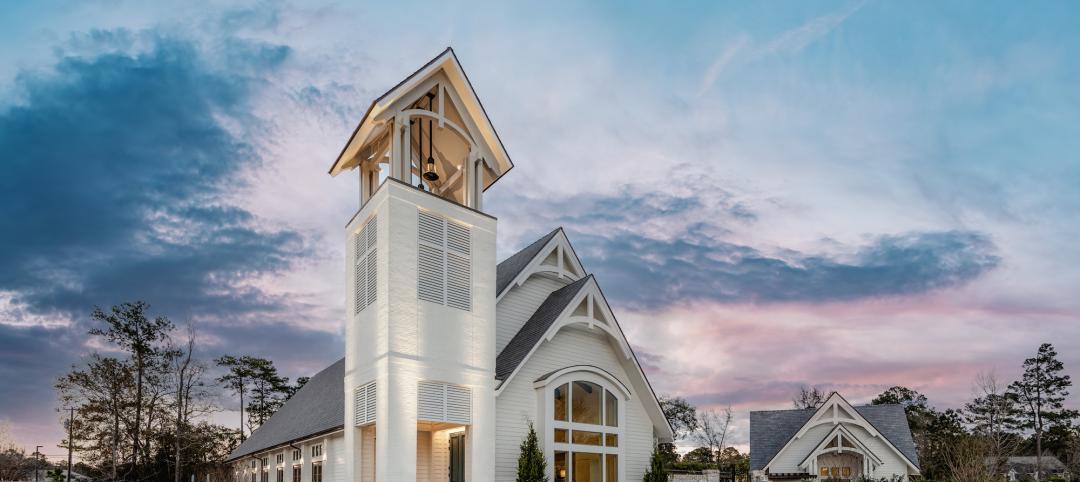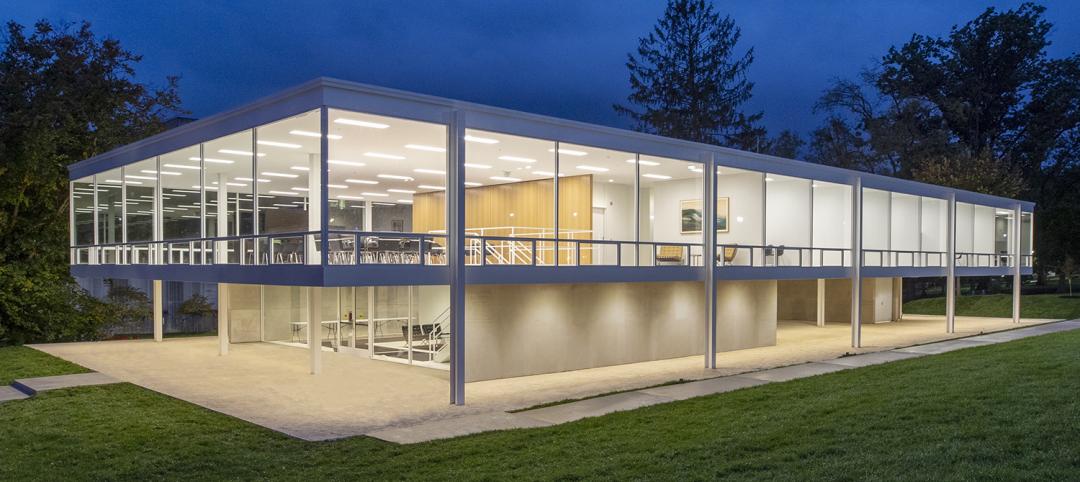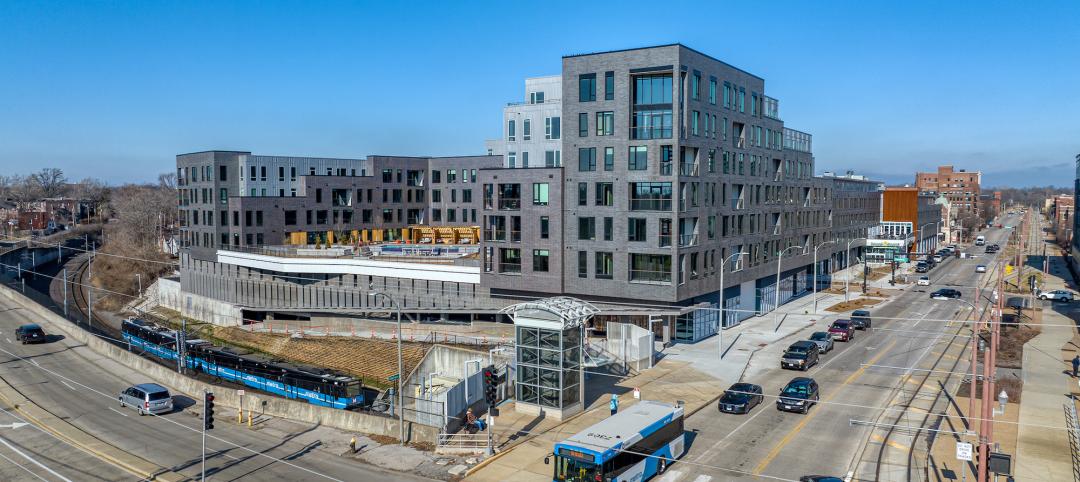The Frank Lloyd Wright School of Architecture at Taliesin announced today that it had reached almost 50% of the $1 million fundraising goal it needs to reach by the end of August on its way to independent status. The remaining $500,000 of these funds must be promised to the school by August 25 for the school’s Campaign for Independence to move forward.
In December of 2014, after an agreement between the Board of The Frank Lloyd Wright Foundation and The Frank Lloyd Wright School of Architecture, the School agreed to raise $2 million, with $1 million of it by the end of this month, in order to achieve the financial autonomy necessary to become an independent organization.
Accreditation for the school has been threatened because the Higher Learning Commission changed its by-laws and would no longer accredit schools that are operating divisions of larger institutions with multi-faceted missions.
The School’s professional M.Arch degree program offers graduate students design-intensive studio experiences at campuses in Taliesin West (Scottsdale, Ariz.) and Taliesin (Spring Green, Wis.). Over the last year, the school has revamped its curriculum to provide a better experimental graduate program in architecture. It focuses on learning how to make the human-made environment more sustainable and open. Students work with local communities to both design and build projects, and they make shelters that each student lives in for his or her final semester.
Accreditation for the school has been threatened because the Higher Learning Commission (HLC) changed its by-laws and would no longer accredit schools that are operating divisions of larger institutions with multi-faceted missions. Facing the possibility of the Frank Lloyd Wright School losing accreditation and potentially closing, longtime supporters suggested the possibility of raising funds to create and support an independently-incorporated school.
The Foundation Board agreed that, if the school's community could raise funds sufficient to demonstrate that the new organization would have “its own financial resources” (as explicitly required by the HLC’s by-laws), then spinning off the school would not present the same obstacles. The new, independent school organization would take ultimate fiduciary responsibility for itself.
As part of the new structure, the Foundation would donate over $1 million in facilities-related cash expenses every year, related to the school's use of Taliesin West and Taliesin as its campuses (at no cost to the school). The Foundation would also contribute an additional subsidy of $580,000 to the school in 2015, with decreasing levels of such additional transitional support over the next five years (but always continuing to cover 100% of annual facility-related expenses which total more than $1 million annually).
In order to achieve the desired independence and continue as a stand-alone School of Architecture, gifts and pledges for an initial $1 million in contributions must be received by August 25, 2015 – and gifts and pledges for a second million must be received by December 31, 2015.
Related Stories
Giants 400 | Feb 6, 2023
2022 Religious Sector Giants: Top architecture, engineering, and construction firms in the U.S. religious facility construction sector
HOK, Parkhill, KPFF, Shawmut Design and Construction, and Wiss, Janney, Elstner head BD+C's rankings of the nation's largest religious facility sector architecture, engineering, and construction firms, as reported in the 2022 Giants 400 Report.
Giants 400 | Feb 6, 2023
2022 Justice Facility Sector Giants: Top architecture, engineering, and construction firms in the U.S. justice facility/public safety sector
Stantec, DLR Group, Turner Construction, STO Building Group, AECOM, and Dewberry top BD+C's rankings of the nation's largest architecture, engineering, and construction firms for justice facility/public safety buildings work, including correctional facilities, fire stations, jails, police stations, and prisons, as reported in the 2022 Giants 400 Report.
Giants 400 | Feb 6, 2023
2022 Parking Structure Giants: Top architecture, engineering, and construction firms in the U.S. parking structure sector
Choate Parking Consultants, Walker Consultants, Kimley-Horn, PCL, and Balfour Beatty top BD+C's rankings of the nation's largest parking structure sector architecture, engineering, and construction firms, as reported in the 2022 Giants 400 Report.
Market Data | Feb 6, 2023
Nonresidential construction spending dips 0.5% in December 2022
National nonresidential construction spending decreased by 0.5% in December, according to an Associated Builders and Contractors analysis of data published today by the U.S. Census Bureau. On a seasonally adjusted annualized basis, nonresidential spending totaled $943.5 billion for the month.
Giants 400 | Feb 3, 2023
Top Workplace/Interior Fitout Architecture, Engineering, and Construction Firms for 2022
Gensler, Interior Architects, AECOM, STO Building Group, and CBRE top the ranking of the nation's largest workplace/interior fitout architecture, engineering, and construction firms, as reported in Building Design+Construction's 2022 Giants 400 Report.
Multifamily Housing | Feb 3, 2023
HUD unveils report to help multifamily housing developers overcome barriers to offsite construction
The U.S. Department of Housing and Urban Development, in partnership with the National Institute of Building Sciences and MOD X, has released the Offsite Construction for Housing: Research Roadmap, a strategic report that presents the key knowledge gaps and research needs to overcome the barriers and challenges to offsite construction.
Steel Buildings | Feb 3, 2023
Top 10 structural steel building projects for 2023
A Mies van der Rohe-designed art and architecture school at Indiana University and Morphosis Architects' Orange County Museum of Art in Costa Mesa, Calif., are among 10 projects to win IDEAS² Awards from the American Institute of Steel Construction.
Multifamily Housing | Feb 2, 2023
St. Louis’s first transit-oriented multifamily development opens in historic Skinker DeBaliviere neighborhood
St. Louis’s first major transit-oriented, multi-family development recently opened with 287 apartments available for rent. The $71 million Expo at Forest Park project includes a network of pathways to accommodate many modes of transportation including ride share, the region’s Metro Transit system, a trolley line, pedestrian traffic, automobiles, and bike traffic on the 7-mile St. Vincent Greenway Trail.
Giants 400 | Feb 2, 2023
2022 Convention Center Sector Giants: Top architecture, engineering, and construction firms in the U.S. convention and conference facilities sector
Clark Group, EUA, KPFF, Populous, TVS, and Walter P Moore top BD+C's rankings of the nation's largest convention and conference facilities architecture, engineering, and construction firms, as reported in the 2022 Giants 400 Report.
Multifamily Housing | Feb 1, 2023
Step(1) housing: A new approach to sheltering unhoused people in Redwood City, Calif.
A novel solution to homelessness will open soon in Redwood City, Calif. The compact residential campus employs modular units to create individual sleeping units, most with private bathrooms. The 240 units of housing will be accompanied by shared services and community spaces. Instead of the congregate dorm-style shelters found in many U.S. cities, this approach gives each resident a private, lockable, conditioned sleeping space.

















